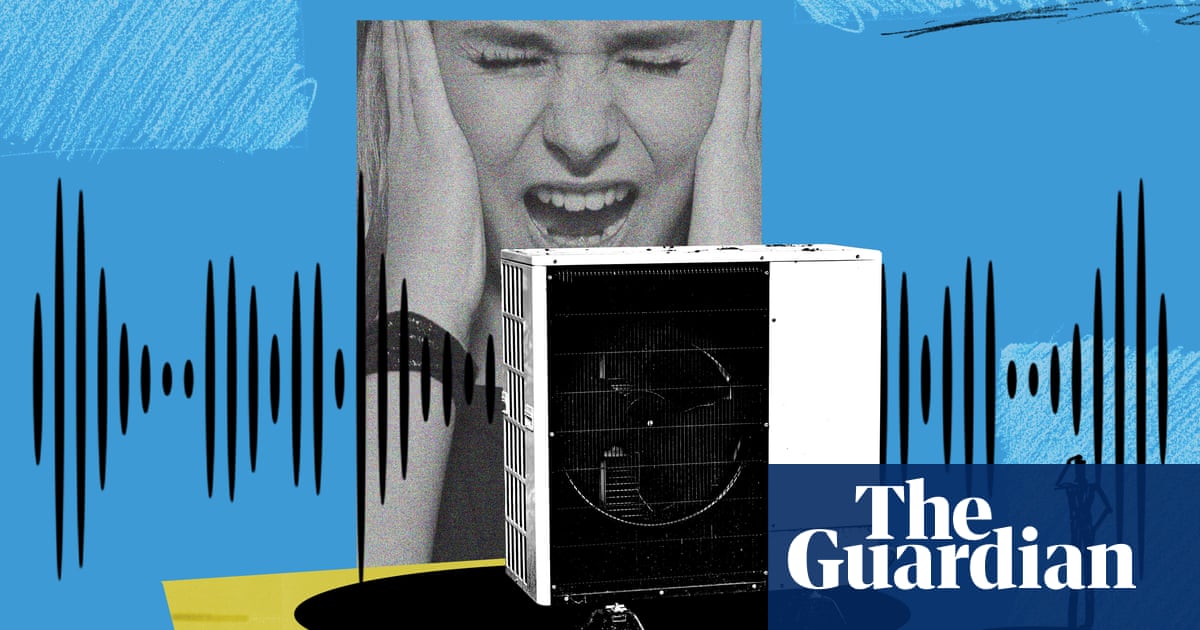Heat pumps are designed to be installed outside the home to extract warmth from the air, ground or water. In densely populated areas, this could mean scores of heat pump fans humming within a small area.
One device typically emits a constant hum of between 40 and 60 decibels – about the same as a fridge or dishwasher – but could millions of heat pumps amount to a noise nuisance?
The claim
Concerns about heat pump noise began to take hold in the British press late last year after the Conservative government commissioned an independent review into noise emissions from air source heat pumps.
Research submitted included a report by three experts presented at the Institute of Acoustics conference last October. It was seized on by the Daily Telegraph, which reported that it had found heat pumps were “too noisy for millions of homes in the UK”.
The report contained a claim that heat pumps installed in flats or terraced houses would break the noise limits set by the Microgeneration Certification Scheme (MCS), an accreditation body, which stipulate that a heat pump should be no louder than 42 decibels within one metre of a neighbour’s door or window.
The Daily Mail and Daily Express repeated the story a day later. Concerns about the issue appeared in the Guardian, too, with one reader’s letter complaining that a summer stay in a development where all eight properties had heat pumps was marred by the devices. “If you sat in the garden in the evening, it was an annoying, continual source of noise,” the writer said.
…
The verdict
Heat pumps are quieter than they used to be, and getting quieter still. But better consumer information could go further in mitigating the overall impact of noise by choosing the best model for the home and using it correctly.
“I believe that many people in the UK try to operate their heat pumps the way they operate gas boilers – turning them on and off – but they can’t heat houses as quickly as gas boilers, so they need to run constantly to do that,” said Harvie-Clark.
Turning heat pumps on after a period of being off will require the machine to work harder and therefore create more noise. So taking a slow and steady approach to home heating can make heat pumps more efficient, and quieter, too.
“In colder European countries they accept that this is how to run heating systems. Our temperate climate means people have different control expectations,” Harvie-Clark said.
“While the potential noise impact of air source heat pumps should be considered, it is important to balance this with the significant environmental benefits of transitioning away from fossil fuel heating systems. Gas boilers also make a noise.”



This is the best summary I could come up with:
By the end of the decade, well over 60m heat pumps could be warming homes across Europe, according to industry figures, as government policies target household carbon emissions.
In the UK, the newly appointed energy and net zero secretary, Ed Miliband, has committed to maintaining the heat pump grants offered by the previous government to help to accelerate the rollout of the technology.
The total effect of this switch away from fossil fuel heating to low-carbon alternatives could cut CO2 emissions across Europe by 46%, but critics of the technology point to another cumulative impact: noise.
Concerns about the issue appeared in the Guardian, too, with one reader’s letter complaining that a summer stay in a development where all eight properties had heat pumps was marred by the devices.
The Guardian reader’s experience may have been due to improper installation or the use of older, noisier heat pump models, according to Jack Harvie-Clark, a director at Apex Acoustics.
Last November the UK government published the results of its review, which found that noise emissions were a concern for a minority of consumers, with a low incidence of complaints.
The original article contains 1,266 words, the summary contains 188 words. Saved 85%. I’m a bot and I’m open source!